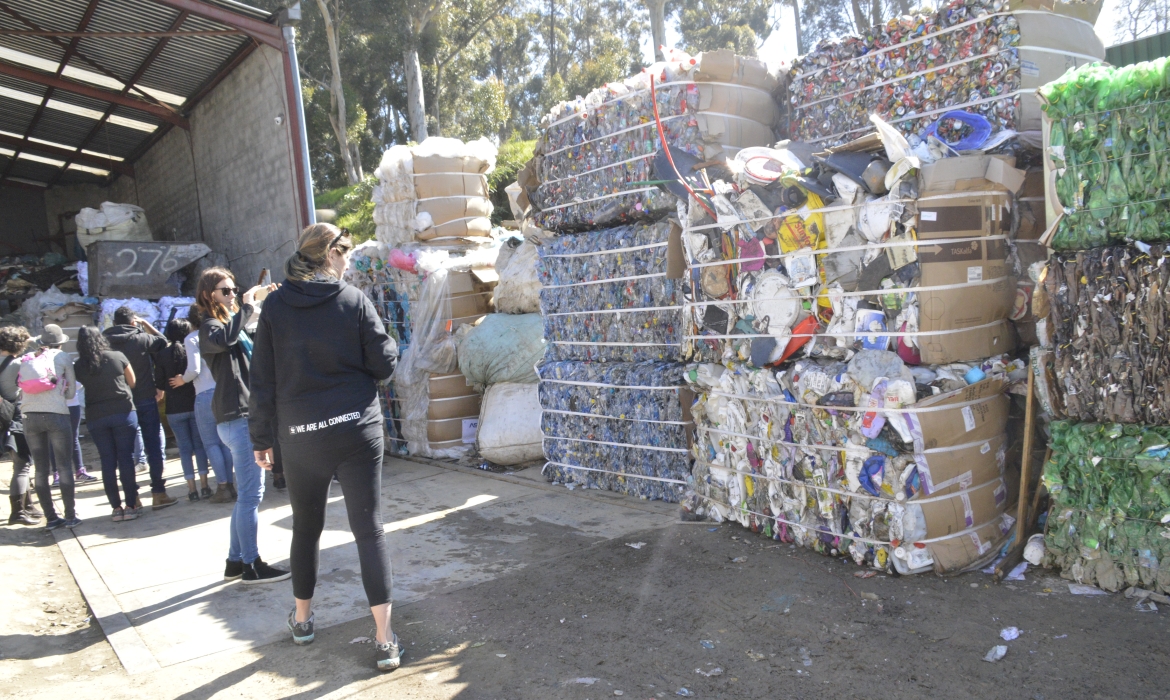The WWF is run at a local level by the following offices...
- WWF Global
- Adria
- Argentina
- Armenia
- AsiaPacific
- Australia
- Austria
- Azerbaijan
- Belgium
- Bhutan
- Bolivia
- Borneo
- Brazil
- Bulgaria
- Cambodia
- Cameroon
- Canada
- Caucasus
- Central African Republic
- Central America
- Central Asia
- Chile
- China
- Colombia
- Croatia
- Democratic Republic of the Congo
- Denmark
- Ecuador
- European Policy Office
- Finland
How we can recycle more effectively in South Africa
A new WWF report look at recycling in South Africa from an industry perspective.
Problematic food packaging, poorly informed consumers, poor design of plastic packaging, an unstable supply chain, and a lack of cooperation between brand owners, producers and retailers are among the many reasons why South Africa is lagging behind when it comes to recycling.
These findings are contained in a new WWF report titled “Plastics: From Recycling to (post-consumer) Recyclate” which looks at recycling from an industry perspective.
Indeed, the report notes that consumers are hard-pressed to do the right thing due to confusing labelling and a lack of information around products containing post-consumer recyclate (the raw material made from products and packaging that is discarded and then made into new raw material at recycling plants).
Food packaging is a particular challenge for several reasons including food-contact and safety standards, along with the fact that post-consumer recyclate is often more expensive than virgin (new) plastic resins.
While there is potential for meaningful, systemic changes, the report notes there is a “general inertia” in the value chain. Very few, if any, brand owners and retailers have a packaging policy which includes recycling design criteria (such as the inclusion of post-consumer recyclate and procurement from suppliers who also support circular packaging).
Another key issue in the value chain is that informal reclaimers face the brunt of any price fluctuations due to the failures of the current free-market system. Together with buy-back centres, formal waste operators and recyclers, they absorb most of the economic losses, which ultimately affects the supply of plastic recyclables.
While the scenario spelled out in the report highlights the many challenges facing the industry, a recent positive step on the part of government has been the gazetting of the Extended Producer Responsibility Regulations for paper and packaging in May this year.
Co-author Lorren de Kock says: “Ideally, we advocate for a ‘circular economy’ where no plastic in any form is being sent to landfill. To do this, we must find ways to keep plastics in the system, which is why the Extended Producer Responsibility Legislation is such an important step. It requires converters, brand owners, importers, licenced agents and retailers to take responsibility for the end of life of the products they place on the market and to reconsider packaging design without laying the problem entirely at the door of the consumer.”
You can also download an abridged fact sheet on the report.
